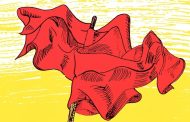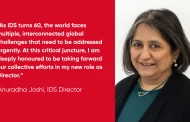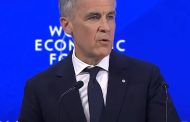In many ways, this is a text anyone who desires to add to his repertoire of the war in Ukraine will value. It has the advantage of coming from the Council on Foreign Relations (CFR), the New York based think tank and intellectual pillar of US foreign policy. The size of a typical Master’s Degree thesis, this version of its ‘Global Memos’ is not a heavy stuff and can be consumed within few hours. What a typical reader makes of the text will be difficult to establish but one feature of the publication is the diversity or representativity of views that undercuts it, from the Western to Russian, Chinese, the Middle Eastern, Latin American and Africa.
The theme to which the contributors were invited to put pen to paper is “Global Perspectives: The Invasion That Shook the World”. In other words, it is about the war in Ukraine.
But it is a splendid publication, if nothing else, then for the inclusivity. The text lives up to its claim of being an initiative of the Council on Foreign Relations connecting leading global foreign policy institutes. Oh yes, there are quite a number of these foreign policy institutes, posing their own lenses on “The Invasion That Shook the World”

Prof Eghosa Osaghae, DG, NIIA and a contributor
In this, one finds Marcin Terlikowski, Deputy Head of Research, Polish Institute of International Affairs (Poland) who wrote on ‘A Transformative Moment for World Order’; Charles A. Kupchan, Senior Fellow, Council on Foreign Relations (United States) who handled ‘A Divided and Deglobalized World’; Igor Yurgens, Chair, Institute for Contemporary Development (Russia) who wrote on ‘Pursuing an Exit From the Crisis—With Global Partners’ and Riccardo Alcaro, Research Coordinator and Head of Global Actors Program, Institute of International Affairs (Italy) who looked at ‘Europe’s New Atlantic Order’
And we have Harsh V. Pant, Vice President of Studies and Foreign Policy, Observer Research Foundation (India) on ‘Finding a New Equilibrium in a Militarized World’; Selim Yenel, President, Global Relations Forum (Turkey) on ‘A Test for Democracy and Global Norms’; Esther Brimmer’ James H. Binger Senior Fellow in Global Governance, Council on Foreign Relations (United States)on ‘How the War Bolstered NATO and the EU but Weakened Food Security’; Eghosa E. Osaghae, Director-General, Nigerian Institute of International Affairs (Nigeria) on ‘The View from the Global South: The Bridge to Cross’.
There are more. They include Steven Gruzd, Head of the Africa-Russia Project, South African Institute of International Affairs (South Africa) on ‘Why African Leaders Have a Blind Spot for Russia’; Priyal Singh, Senior Researcher, Africa in the World, Institute for Security Studies (South Africa) on ‘In War’s Shadow, Risk and Opportunity for Africa’; Juan Battaleme, Academic Director, Argentinean Council of Foreign Relations (Argentina) on ‘For Latin America, It Is a European War’; Abdulaziz Sager, Chair, Gulf Research Center (Saudi Arabia) on ‘The Effect on the Gulf Region’; Sam Roggeveen, Sam Roggeveen, Director, International Security Program, Lowy Institute (Australia), ‘The Role of Nuclear Deterrence’; Paul Samson’, President, Centre for International Governance Innovation (Canada) on ‘The Future of Modern Warfare on Display in Ukraine’; Yose Rizal Damuri, Executive Director, Centre for Strategic and International Studies (Indonesia) on ‘The Lasting Economic Damage of Russia’s Invasion’; Orysia Lutsevych, Head of the Ukraine Forum and Research Fellow, Chatham House (United Kingdom) on ‘Western Democracies Need to Ensure That Ukraine Wins’; Steven Blockmans, Director of Research, Centre for European Policy Studies (Brussels) on ‘How to Make Russia Pay for its War Against Ukraine’.
Lastly, there are Chen Dongxiao, President, Shanghai Institutes for International Studies (China) on ‘Creating the Conditions to End the War’; Lawrence Anderson, Senior Fellow, S. Rajaratnam School of International Studies (Singapore) on ‘Finding a Path to a Neutral Ukraine’; Janis Kluge, Senior Associate, Eastern Europe and Eurasia Division, German Institute for International and Security Affairs (Germany) on ‘Why a Russo-Ukrainian Peace Process Will Remain Elusive’; Yasushi Kudo, President, The Genron NPO (Japan) on ‘Can the United Nations End the War in Ukraine? China Could Help Make It Happen’ and Yu Tiejun, President, Institute of International and Strategic Studies, Peking University (China) on ‘A Pressing Need for Diplomacy’.
It can be taken as a demonstration of its leadership position by the Council on Foreign Relations to bring together a multiplicity of voices on a highly contested issue as the war in Ukraine. In terms of age and experience in intellectualizing foreign policy, the Council on Foreign Relations is certainly there. It is a different matter when it comes to its ideological direction but, even in that, it is also a contested space.
The stuff which is freely available for download features Nigeria’s Prof Eghosa Osaghae, the Director-General of Nigeria’s foreign policy think tank, the Nigerian Institute of International Affairs, (NIIA).




























